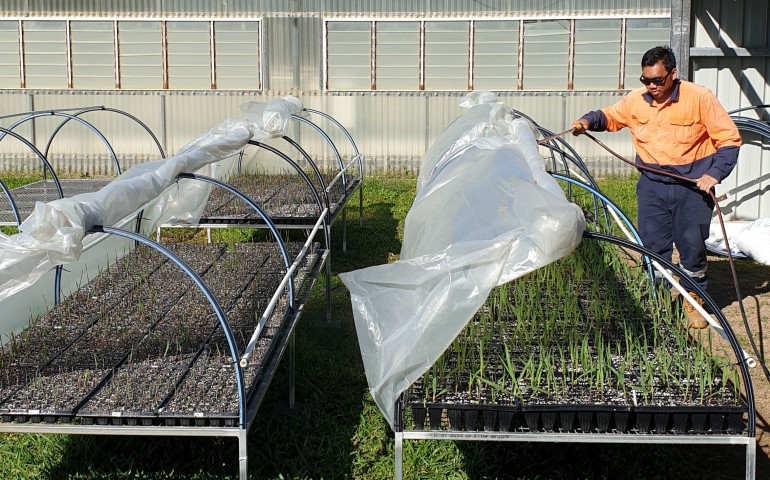With planting in full swing it is coming up to the time when new seed cane is planted for next year’s commercial planting. One of the critical decisions growers have to make is which varieties to propagate?
Clean seed for planting is critical, especially to manage the risk of Ratoon Stunting Disease (RSD) and as the name suggest, RSD gets worse as the crop ratoons get older so to start with clean seed for planting is very important.
We always recommend growers replenish clean stocks of the main older varieties like Q208, Q200, KQ228, as well as the newer ones like Q253, Q240, Q250 every few years just to maintain the best chance of high yields and when it comes to the more recently released new varieties, there are even more choices.
This is why TSL and the Tully Variety Management Group run trials of these new and newer varieties for each sub district , to try to work out as quickly as possible which ones will work commercially and should be propagated up for commercial planting.
Locally Tully Cane Productivity Service operate the clean seed plots to provide clean seed for propagation and always try to produce as much clean seed of a desired variety as possible. Over the years the industry had put a lot of time and effort into maximizing the propagation process, ranging from hand cutting and planting to tissue culture.
Another way to do it is to plant what is known as “single eye setts”. This is not new technology but locally a refinement of the process is currently being undertaken by TCPSL.
TCPSL manager Peter Sutherland, who has a wealth of knowledge in this area from his days in Proserpine has set up a process in Tully to streamline the production of single eye setts.
This involves setting up a micro nursery on the SRA site to grow the single eye sets or one eye setts (OES) as they are sometimes known which as the name suggests are new cane plants grown from small segments of a cane billet with just one eye to grow from. OES has been used for many years by BSES and now SRA to maximise the planting material in the cane variety breeding program.
Locally the innovation comes from a process where the OES material is pre germinated at optimum temperature and only viable eyes are then planted. Temporary plastic Igloos are used to help control the environment for the OES as they are usually established during the winter months.
Once we recommend a new variety for propagation, processes like OES and Tissue Culture will help get the new varieties to growers quickly and provide another cost effective alternative for propagation.

